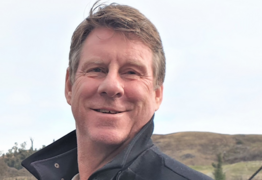Concerns raised as proposed water delivery model goes out for consultation
Sue Wards, Editor
03 June 2025, 5:06 PM
 The proposed model would manage and deliver drinking water, wastewater, and stormwater services.
The proposed model would manage and deliver drinking water, wastewater, and stormwater services.Members of the public will get their say on a proposed organisation - independent from council - to deliver water services in this district.
Queenstown Lakes District Council (QLDC) elected representatives discussed the issue at their meeting last week (Thursday May 29), and agreed - with the exception of councillor Niki Gladding - to public consultation on a proposed Water Services Council Controlled Organisation (WSCCO).
A WSSCO would operate as a council controlled organisation to manage and deliver drinking water, wastewater, and stormwater services in the district, and to own QLDC’s current water assets and their associated debt and liabilities.
Councillors raised concerns at the meeting that the costs of such a model could be much higher than estimated, and out of council’s control.
Deputy mayor Quentin Smith said neither of the models proposed (a WSCCO and an in-house council model) provided “an affordable solution for water provision into the future”, despite three versions of the report having been delivered.
“None of these have dealt with the fundamental problem which is affordability,” he said, adding that in ten years’ time the cost for water users in the district would “one way or another be unaffordable”.
“I don’t have particular faith that a WSCCO model automatically provides better expertise or better professional governance,” he said.
Mayor Glyn Lewers argued in favour of the WSCCO, saying political parties were “forcing” councils to go with a WSCCO model and eventually “a more amalgamated version across the country”.
“You’d have to have your head buried in the sand to think that’s not going to occur over the long term,” he said.
“In my time as mayor I’ve had to deal with the cryptosporidium outbreak, the current Shotover Plant [non-compliance], also we’re trucking waste from Hāwea, all rooted in decisions made long before any of us turned up.
“It is political interference that has got us to this point and has made us pay more for water now.”
Glyn said QLDC was about to spend $1.47B on capital works over the next ten years.
“I’d rather have a group of professionals focus purely on that, delivering and driving a cost to the ratepayer as efficiently and as effectively as possible. I think the water [WS]CCO is the only way that can happen. As councillors we know we don’t have [the] capability to figure it all out amongst ourselves.”
Councillor Barry Bruce told the Wānaka App he preferred the WSCCO model, “as it puts ‘waters operations’ on a more business-based approach and takes away political influences that have not always worked in the best long-term interests of our communities”.
He was concerned about “the relatively short consultation period and the complexities of the process”, and said he had advocated for more opportunities for residents to learn about the proposed model.
There will be four weeks’ consultation on the proposal, which must be considered as part of central government’s Local Water Done Well plan to address New Zealand’s water infrastructure challenges.
Read more: New water model proposed for district
PHOTO: Supplied







